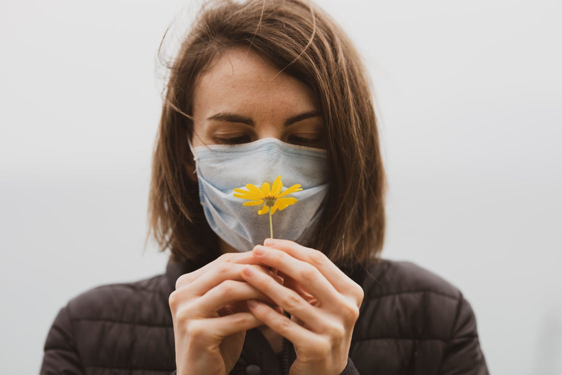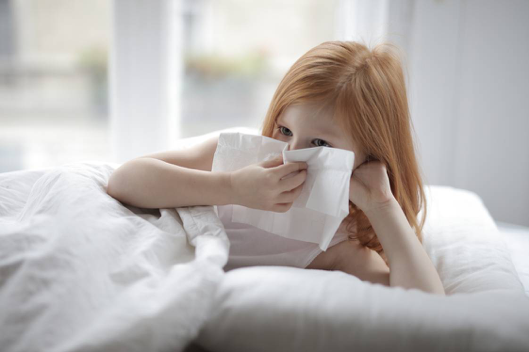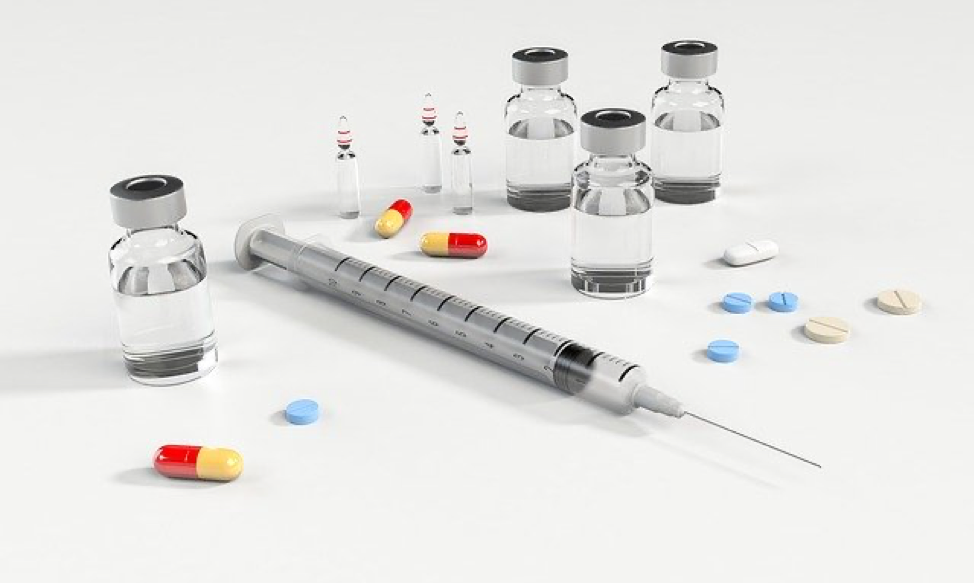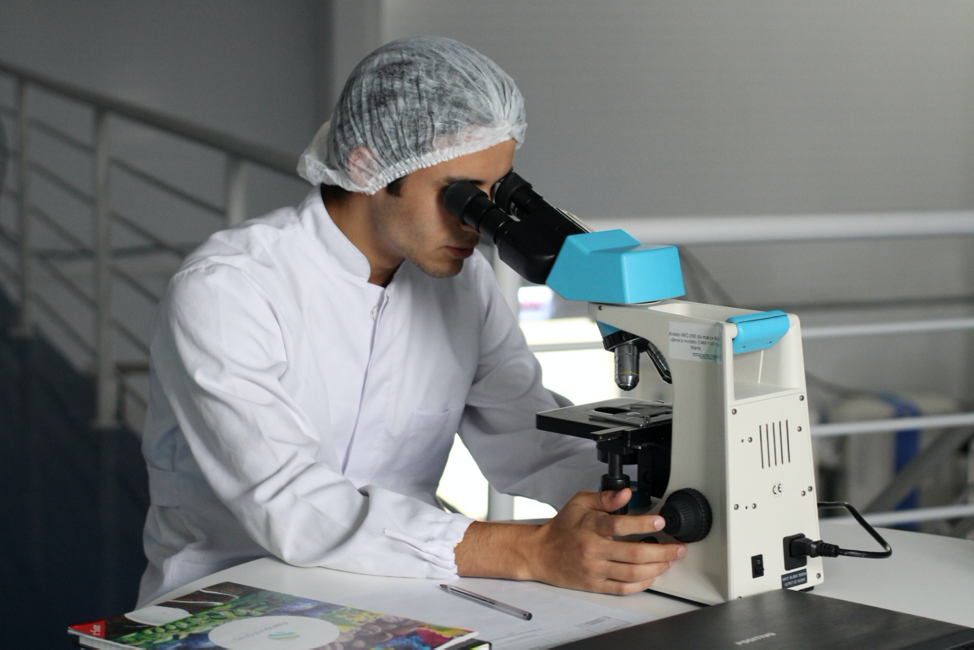Category Archives: Immune System Problems
Immune System Disorders: Recognizing the Signs
When something goes wrong, and the immune system becomes underactive or overactive, it can lead to immune system disorders that may significantly affect your health. Your immune system is your body’s defense mechanism — a complex network of cells, tissues, and organs that protect you from infections and diseases. When it functions properly, it fights off harmful invaders like bacteria, viruses, and allergens.
Understanding the early warning signs of immune dysfunction is crucial for timely diagnosis and treatment. In this guide, we’ll explore the different types of immune system disorders, common symptoms to watch for, and when to seek help from a specialist.

Types of Immune System Disorders
Immune system disorders fall into several categories based on how the immune system is affected:
- Primary Immunodeficiency Disorders: These are inherited conditions where part of the immune system is missing or doesn’t function properly. They are often diagnosed in childhood.
- Secondary (Acquired) Immunodeficiencies: These develop due to external factors such as infections (like HIV), chemotherapy, or chronic illnesses.
- Autoimmune Diseases: In these conditions, the immune system mistakenly attacks the body’s own healthy tissues. Examples include lupus, rheumatoid arthritis, and multiple sclerosis.
- Allergic Conditions: An overreaction of the immune system to harmless substances, such as pollen, dust, or certain foods, resulting in allergies or asthma.
Early Signs of an Immune System Disorder
Recognizing the early symptoms of immune dysfunction can help you get treatment before complications arise. Common warning signs include:
- Frequent Infections: More than four ear infections a year, repeated pneumonia, or chronic sinus infections may indicate an underlying immune issue.
- Persistent Fatigue: Feeling constantly tired or drained can be a sign that your immune system is under stress or not functioning properly.
- Delayed Growth or Development (in children): Children with immune issues may fail to grow or gain weight as expected.
- Digestive Problems: Chronic diarrhea, cramping, or loss of appetite may suggest inflammation caused by immune dysfunction.
- Inflamed or Painful Joints: Joint pain, stiffness, or swelling could be related to autoimmune activity.
- Skin Rashes or Hives: Persistent or unexplained skin issues may signal an overactive immune response.
How Are Immune Disorders Diagnosed?
If you or your child are experiencing ongoing symptoms, a specialist may perform the following evaluations:
- Medical History & Physical Exam: Your physician will evaluate your symptoms, health history, and any recurring infections.
- Blood Tests: These tests measure immune cell counts, antibody levels, and signs of inflammation or autoimmune activity.
- Allergy Testing: Identifying environmental or food allergies that could be triggering immune responses.
- Imaging & Biopsies: In certain cases, imaging studies or tissue biopsies may be needed to evaluate organ involvement or inflammation.
Treatment Options for Immune System Disorders
Treatment depends on the type and severity of the disorder. Common approaches include:
- Immunoglobulin Therapy: Replaces missing antibodies in patients with immunodeficiencies.
- Anti-inflammatory or Immunosuppressant Medications: Used for autoimmune diseases to calm the immune response.
- Targeted Biologic Therapies: Advanced treatments that block specific immune system signals involved in disease processes.
- Allergy Management: Including antihistamines, corticosteroids, or allergy immunotherapy to reduce overactive immune responses.
- Lifestyle Adjustments: Diet, stress management, sleep, and infection prevention are all essential in managing immune disorders.
When to See a Specialist
If you experience frequent infections, unexplained fatigue, or symptoms that don’t improve with routine care, it’s time to consult a specialist. Immune system disorders are manageable — especially when diagnosed early.
Contact an Allergy and Immunology Specialist in NYC
If you’re concerned about a possible immune system disorder, schedule a consultation with Dr. Boyan Hadjiev at:
Allergy, Asthma and Sinusitis P.C
Boyan Hadjiev, MD
30 East 40th Street
Suite 1200
New York, NY 10016
212-319-5282
Early detection and personalized treatment can dramatically improve quality of life for those living with immune system disorders. Take the first step toward answers and relief today.
What Are Immunologists?
Have you wondered what immunologists are and do? Immunology involves studying the immune system and its process of protecting the body from various infections and viruses. The immune system provides essential defensive capabilities. An active immune system functions automatically and eliminates any external element that is a threat to the body. If your immune system doesn’t work properly, you are prone to various diseases. Scientists and immunologists research how our body mechanisms protect us from new diseases and how you can improve your immune system.

(Source)
What do Immunologists do?
Immunologists help diagnose and treat allergies and other diseases related to the immune system. When your immune system overreacts or doesn’t work properly, an immunologist can help you maintain the system.
If you are suffering from allergies, you need to consider visiting and consulting an immunologist. Allergies occur when your immune system reacts to substances that are not harmful, thinking that they’re a threat.
What is an Immune System
The immune system provides protection from various pathogens and harmful substances that can cause a disease or allergy. Some of the most common pathogens that the immune system provides protection against include viruses and bacteria, which can cause infections. The immune system involves cellular and molecular activities. Your body contains two types of immunity. The first is innate immunity, which is the first line of defense, and adaptive immunity, which is the second line of defense.
Conditions that Immunologist can Treat
Below, you will find some conditions related to the immune system that Immunologist can treat:
1. Allergic Rhinitis
In this condition, you may experience an allergic reaction affecting your airways and nose. Allergic Rhinitis will cause inflammation to the regions of your body that are part of the breathing process. Another name for this condition is hay fever, which is a common condition. The symptoms of this condition also include sneezing, itchy or stuffy nose, etc. This occurs when your body overreacts to an allergen.
2. Allergic Conjunctivitis
When you are in contact with allergens in this condition, you will experience inflammation around your eyes. You will feel itching, redness, tearing, and swelling of the eyes. Another name for the condition is a pink eye, and it is the result of a bacteria or a virus.
3. Asthma
Asthma is a chronic condition and can be fatal. In this condition, you may find it difficult to breathe. In this condition, your airway swells and produces excessive amounts of mucus. The narrow airways lead to impossible or difficulty in breathing. You will also experience a whistling sound, triggering cough and tightness of the chest.

(Source)
4. Anaphylaxis
This is another condition related to a breathing disorder. This condition is also fatal, and other symptoms include vomiting and low blood pressure. Stings from various insects, foods, latex, and medications can cause Anaphylaxis. Many people are also allergic to peanut butter and berries. After encountering these allergens, your immune system will release large amounts of chemicals that lead to a shock. To minimize the symptoms, doctors prescribe Injectable epinephrine to people with allergies. Whenever they encounter the allergen, they use the epi-pen to avoid symptoms.
5. Atopic Dermatitis
With this allergic reaction, you may experience itchy and red skin with rashes. Sometimes, this condition can lead to hay fever or asthma. Moreover, medical professionals and researchers have yet to develop a cure for this condition. This eczema-type condition usually affects children, and its triggers include food and environmental conditions. This is a chronic condition, and the reaction can grow worse over time. Other symptoms of atopic dermatitis are sweating, a rise in body temperature, stress, and irritation. Various treatments and avoiding allergic substances can lower the risk of developing such a condition.
6. Urticaria
People also know this allergic condition as hives. This occurs when your body comes into contact with medication or food allergens. Your skin will turn red and itchy. You may also develop welts through various environmental allergens. Chronic urticarial will remain for around six weeks.
7. Eosinophilic Esophagitis
This is a chronic disorder of the immune system. In this condition, white blood cells build up in your food pipe or esophagus, causing tissue damage and chronic inflammation.
Immunologists: Conclusion
An immunologist can treat, manage, and diagnose all the above-mentioned conditions. Besides, they can help with your allergic reactions and other immunodeficiency conditions as well. Immunologists also develop new treatments and tests to help your immune system work normally by combining their academic research and clinical experience. They are also involved in research and analysis other than treating conditions related to the immune system.
If you are suffering from an immune system related condition, or are experiencing any of the symptoms of the above-mentioned conditions, visit our clinic.
Allergy specialist Dr. Boyan Hadjiev will diagnose your condition and devise a treatment plan. His extensive experience and understanding of the field allows him to offer the best suited treatments.
Contact us at 212-319-5282 or fill out a contact form.
Sources
https://www.immunology.org/public-information/what-is-immunology
https://www.medicalnewstoday.com/articles/what-is-an-immunologist
Immunotherapy
Immunotherapy is also known as biological therapy. This therapy helps your immune system fight cancer. Your immune system and lymph system’s tissues and organs are made up of white blood cells. They help your body fight off diseases. Immunotherapy increases the strength of the immune system to eliminate cancer. It boosts white cells ability to attack cancer cells.

Doctors and researchers have approved various immunotherapy drugs and prescribe them according to the patient’s type of cancer. If your doctor is suggesting immunotherapy for you, you should discuss many things before opting for it
How Does Immunotherapy work?
This therapy takes up many forms, such as targeting antibodies, tumor-infecting viruses, cancer vaccines, adoptive cell transfer, and cytokines. Immunotherapy uses various substances from living organisms or laboratory-made formulas to fight and control cancer.
Immunotherapy treatment adopts various techniques like genetic engineering and gene therapies. Medical professionals can combine this technique with surgery, radiation, chemotherapy, or targeted therapies to improve their results. A patient’s body undergoes different situations during immunotherapy. Immunotherapy works in the following ways.
- This therapy educates the immune system to recognize and kill cancer cells
- It increases the production of white cells and boosts the present cells to prevent cancer.
- It gives body necessary components to enhance the response of the immune system.
Types of Immunotherapy Treatments

The following are the types of immunotherapy treatments:
- Topical: This therapy comes in a cream.
- Intravenous: This includes Intravenous therapy (IV) to deliver fluids directly in the vein. For this type of therapy, injections and syringes can be used at higher pressure to increase effects.
- Intravesical: This therapy delivers specific drugs to the bladder.
- Oral: This treatment includes capsules or pills.
After the treatment, you have to go for regular checkups, scans, and blood tests to know the results of treatments. The response of the treatment depends on the patients. There are chances of some patients not responding to the therapy as well as others.
Pros of the Treatment
There are many benefits of immunotherapy because white blood cells play a great role in preventing and control cancer. Immunotherapy is the best treatment for cancers because of the following reasons.
· Immunotherapy May Be Best Treatment for You
Sometimes radiation or chemotherapy doesn’t respond to various cancers like skin cancer. However, Immunotherapy has a higher chance of responding to skin cancer.
· Immunotherapy Boosts Other Treatments
It helps various treatments work better. This includes chemotherapy, which begins responding early when combined with immunotherapy.
· Fewer Side Effects Compare to Other Treatments
It has fewer side effects compared to other cancer treatments because it only targets your immune system.
· Prevents Cancer Cells
Immunotherapy educates immune cells to go after cancer cells and kill them. They remember the cancer cells; this is called immunological memory. This therapy helps your body to prevent the development of cancer for a longer time.
Cons of the Treatment
Immunotherapy is not as dangerous as other treatments of cancer, but it has some effects and reactions.
· Side Effects
Some types of immunotherapy have side effects like flu. Some people also experience diarrhea, swelling, stuffiness, and weight gain.
· Effects on Organs
Sometimes, the immune system attacks your various organs e.g.: intestine, heart, kidney, and other organs.
· Bad Reactions
You may have to face pain, redness, itching, swellings, and soreness during the treatment. But it only occurs in areas where medication is applied.
· Long Treatment
Sometimes it takes longer than any other treatment.
· Don’t Work On Some People
Some patients don’t respond to this therapy. Half of the people don’t get results of immunotherapy.
· Stop Working
In some cases, it provides only short-term effects and stops working.
Immunotherapy Is Better Compared to Other Cancer Treatments
Immunotherapy doesn’t have the same side effects of chemotherapy and radiation. It is a better way to treat your cancer.
- Immunotherapy only targets the immune system, while chemotherapy or radiations also target other areas.
- Conventional treatments like radiation and chemotherapy affect cancer cells and healthy tissues because of radiological and chemical therapy. In return, you experience negative side effects.
- Side effects of immunotherapy depend on its type. The side effects are also minor, like misdirection of the immune system. On the other hand, radiation and chemotherapy induce long term effects.
IMMUNODEFICIENCY
The immune system helps your body protect you from bacteria, viruses, and parasites. Harmful and harmless bacteria are always present in and around your body. White cells protect you from harmful bacteria. Your body organs release lymphocytes. Lymphocytes or white cells are of two types. B type cells release antibodies when your body detects disease, and T-cells are responsible for destroying foreign or abnormal cells. If your body prevents you from fighting these infections and diseases, you have a disorder, namely immunodeficiency. Lack of protein causes a weak immune system.
Types of Immunodeficiency Disorder
There are two types of immunodeficiency disorders: primary and secondary immunodeficiency disorder. Both types are mentioned below with further subcategories:
1. Primary Immunodeficiency Disorder
Primary Immunodeficiency disorder or PIDDs are genetically transferred disease. There are more than 200 different types of PIDD disorders. If you are suffering from PIDD, different types of white cells or proteins are missing in your blood, and this leads to severe infections. This deficiency may attack the respiratory system, brain, spinal cord, and urinary or gastrointestinal tracts. Some PIDD diseases affect body organs, cells, and tissues. If you find these symptoms, you might have PIDD:
- Loss of weight
- Having problems treating infections
- Lack of growth
- Autoimmune disease
a) X-linked Agammaglobulinemia ( XLA)
This condition can cause a reduction in B-cells. When B-cells lack in your body, you will be a target of various infections, and the treatment is difficult. Even after you treat these infections, there are chances of getting them again. The most common bacterial infections that you might face are lung infections, ear infections, sinus, and pink eye. If your child is suffering from this immune deficiency, he or she will be fine for 1 to 2 months. He or she gets protection from antibodies that their mother transfers to them while giving birth. Once these antibodies are out of their bodies, they are at risk of infections.
b) Common Variable Immunodeficiency (CVID)
This disease can cause permanent damage to the respiratory tract because of severe and repeated infections. This deficiency occurs when the body opens to bacteria and viruses and is unable to defend itself. The infections affect the ears and the respiratory tract. In many cases of CVID, diagnosis is not possible at an early stage. If you are suffering from CVID, you might have higher risks of getting cancer. This disease can affect both males and females, and severity may vary from one victim to another.
2. Secondary Immunodeficiency Disorder
Diseases that come under secondary immunodeficiency disorders are a result of environmental factors. Examples include HIV, malnutrition, and severe burns. These are more common than PIDD. If your immune system is infected by external factors like drugs, metabolic diseases, or environmental conditions, this may cause a deficiency in your body. If your body has limited access to food, you might end up suffering from malnutrition, which can result in decreasing the production of T-cells. Your body is prone to various infections if you lack T-cells, as these cells help protect your body from abnormal cells.
a) AIDS
Human Immunodeficiency Virus or HIV is a type of virus that causes AIDS. Your immune system is a defense mechanism for your body. The healthy immune system can control many viruses with the help of T-Cells. HIV targets these cells and causes them to make copies of viruses that damage your immune system. The advanced stage of HIV disease is AIDS. It is a deadly disease that occurs when HIV is not controlled, and the body loses too many T-Cells. That makes your body’s immune system weak, and you are unable to fight infections.
b) Leukemia
When cancer infects the tissues that form blood, the result is Leukemia. This type of cancer occurs in both children and adults. This affects your bone marrow and the lymphatic system.
Conclusion
Immunodeficiency is a severe condition, and you should take it seriously. Any ignorance in its treatment can cause serious problems. Some of these diseases can be fatal. For a consultation regarding this deficiency, you can contact us.
Call or book an appointment with our NYC Allergist to get help with your condition.
Boyan Hadjiev, MD
30 East 40th Street
(Btwn Madison and Park)
Suite 1200
New York, NY 10016
212-319-5282
Serving all of New York City and the Tri State Area including Zip Codes: Top Allergist NYC Midtown, Chelsea and Clinton: 10001, 10011, 10018, 10019, 10020, 10036 | Gramercy Park and Murray Hill: 10010, 10016, 10017, 10022 | Greenwich Village and Soho: 10012, 10013, 10014 | Lower Manhattan: 10004, 10005, 10006, 10007, 10038, 10280 | Lower East Side: 10002, 10003, 10009 | Upper East Side: 10021, 10028, 10044, 10128 | Upper West Side: 10023, 10024, 10025
